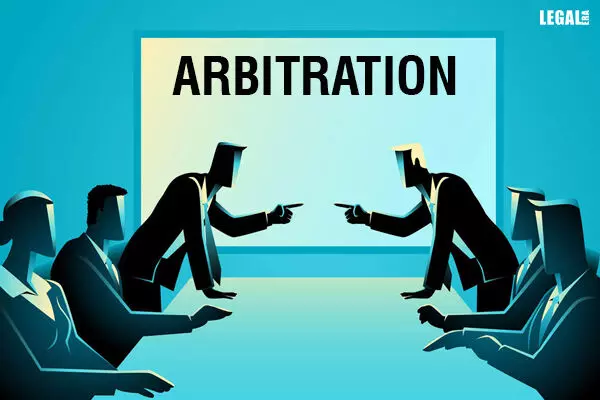
Karnataka High Court Rejects Petition Seeking Arbitration Proceedings Termination
Imposes a penalty on the petitioner for delay tactics
The Karnataka High Court has dismissed a writ petition seeking termination of arbitral proceedings under Section 29A of the Arbitration and Conciliation (A&C) Act.
The bench comprising Justice SG Pandit and Justice CM Poonacha observed that even though the arbitrator proceeded diligently, the petitioner took several adjournments causing delay. The court thus imposed a penalty of Rs.25,000 on the petitioner.
It held that the 12-month period for delivery of an arbitral award under Section 29A would begin from the date of completion of the proceedings, which would include a sur-rejoinder statement. The stay period, due to admission of insolvency proceedings against the claimant, would be excluded from computation of limitation.
The petitioner Buoyant Technology Constellations and respondents Manyata Infrastructure Developments and Manyata Realty entered a Memorandum of Understanding (MOU) and certain joint development agreements.
However, disputes arose between them over agreements, and they invoked the arbitration clause. On 05.12.2022, the respondents filed their claim statement and the proceedings continued with the entities’ objections and counterclaims.
When the petitioner sought a time extension to file a surrejoinder, it was rejected by the arbitral tribunal. It led the petitioner to file W.P.No.10091/2023 seeking relief, which was disposed of.
The petitioner was given the liberty to file its surrejoinder by 20.05.2023, without seeking further extension. The petitioner submitted the surrejoinder and the pleadings were completed.
In the meantime, proceedings were initiated against the petitioner under Section 95 of the Insolvency and Bankruptcy Code, 2016 before the National Company Law Tribunal (NCLT).
On 20.12.2023, the court stayed the NCLT and arbitral proceedings. It remained in force until 06.03.2024, when the NCLT proceedings were disposed of. Thereafter, the petitioner approached the high court seeking termination of the arbitrator’s mandate.
The petitioner submitted:
• The timeline for making the award should commence from 25.02.2023 when the respondents filed their objection to the counterclaim and rejoinder.
• The arbitrator failed to deliver an award within 12 months from the date of completion of the proceedings.
• Surrejoinder would not extend the date for making the award.
• The period of stay in the arbitral proceedings, due to the NCLT proceedings, should not be excluded from the timeline.
The respondent made the counter-submissions:
• The timeline for making the award should commence from 20.05.2023 when the petitioner filed its surrejoinder as per the court’s permission.
• The period of stay in the arbitral proceedings, due to the NCLT proceedings, should be excluded from the timeline for making the award.
The judges examined the provisions of Section 29A, which mandates that the award in matters (other than international commercial arbitration) should be made within 12 months from the date of completion of pleadings under Section 23(4).
The bench observed that the completion of pleadings under Section 23(4) included the statement of claim, objections, counterclaim, and objections to counterclaim. The petitioner’s surrejoinder, filed with the permission of the court, formed part of the pleadings.
It highlighted that the order in W.P.No.10091/2023 granting liberty to the petitioner to file surrejoinder without seeking further extension effectively extended the timeline for making the award. This was because the surrejoinder filed on 20.05.2023 was considered part of the pleadings. The 12-month period for making the award had commenced.
The judges considered the period of stay in the arbitral proceedings due to the NCLT proceedings. They reiterated the principle that the period of stay granted by a court should be excluded from the calculation of the timeline.
The bench emphasized that the purpose of fixing timelines under Section 29A was to ensure speedy resolution of disputes. It addressed the issue of maintainability of the writ petition, noting that challenges to interim orders of the arbitral tribunal should be raised in Section 34 proceedings and not in a writ petition.
Since the petitioner had sought many adjournments and extensions, the judges dismissed the petition, and the petitioner was penalized.